BANGKOK/KUALA LUMPUR: When United States President Donald Trump issued an executive order to freeze nearly all foreign aid on Jan 20, on the other side of the world, Emilie Palamy Pradichit knew the decision would hit her organisation hard.
Palamy Pradichit is the founder and executive director of Manushya Foundation, a non-governmental organisation (NGO) advocating for local communities and women’s rights headquartered in Bangkok. Its funding heavily relied on the US Agency for International Development (USAID), which is responsible for administering the country’s civilian foreign aid and development assistance.
Weeks after the funding tap was turned off, the Manushya Foundation has seen some of its most critical functions halted or scaled back. Most at risk are the activists across Asia that the organisation helps keep safe, a function that is mostly hidden from public view, she explained.
The foundation supports environmental defenders, climate justice groups, indigenous peoples groups and political activists “being targeted”, typically by governments, across the region including most of Southeast Asia, Pakistan and Mongolia.
“We have nine safe houses in Bangkok where we can hide families and activists that come to hide in Thailand, hoping to be resettled to a third country and we also provide a lot of rapid response grants,” she said. Many activists can find themselves in imminent danger and need assistance at short notice, she explained.

“(The public doesn’t) know that we are protecting activists, hiding them, providing grants, because that’s the work that we didn’t want to be that visible to be able to do it well.”
Manushya Foundation, according to Palamy Pradichit, saw its 2025 funds worth US$560,000 for such projects disappear.
Its five-year project is all but over; the organisation has been forced to downsize its operations, cut staff and let go of safe houses. Only the most at-risk activists are still receiving support while others will now have to fend for themselves.
“It’s not a funding crisis. It’s a question of life and death. The activists that we were hiding, tomorrow, they can be killed because they’re no longer in our safe houses,” she said.
The US is the world’s largest donor of aid, allocating US$54 billion in fiscal year 2024, according to partial reporting figures on ForeignAssistance.gov, the federal government’s official foreign aid website.
US development assistance has been in the crosshairs of the so-called Department of Government Efficiency (DOGE) led by Elon Musk, the world’s richest man and a close adviser to Trump.
A US federal judge ruled on Mar 19 that DOGE likely violated the US constitution by shuttering USAID, ordering that the Trump administration reverse some of its actions.
But in the midst of legal battles, USAID staff were forced to leave their foreign postings and cut communications with their field partners.

This has created general confusion in Thailand, Malaysia and elsewhere in the region, causing operational work that supports vulnerable communities to run aground.
Stakeholders also told CNA reforms to humanitarian aid are needed, even as governments worldwide increasingly reduce foreign aid budgets and are more willing to offer concessional loans instead.
Globally, USAID is set to slash 5,200 of its 6,200 programmes, a move designed to cancel the spending of “tens of billions of dollars” in ways that hurt or did not serve the core national interests of the US, Secretary of State Marco Rubio wrote on the social media platform X.
For fiscal year 2024, the US allocated about US$4.1 billion in foreign aid to East Asia and Oceania, which includes Southeast Asia. The Sub-Saharan Africa region was the largest beneficiary with an allocation of almost US$14 billion.
Of the US$4.1 billion allocated to East Asia and Oceania, more than half – or US$2.3 billion – was managed by the Department of State.
USAID oversaw US$1 billion of the total allocation, while the rest was managed by agencies that include the Millennium Challenge Corporation and Department of Agriculture.
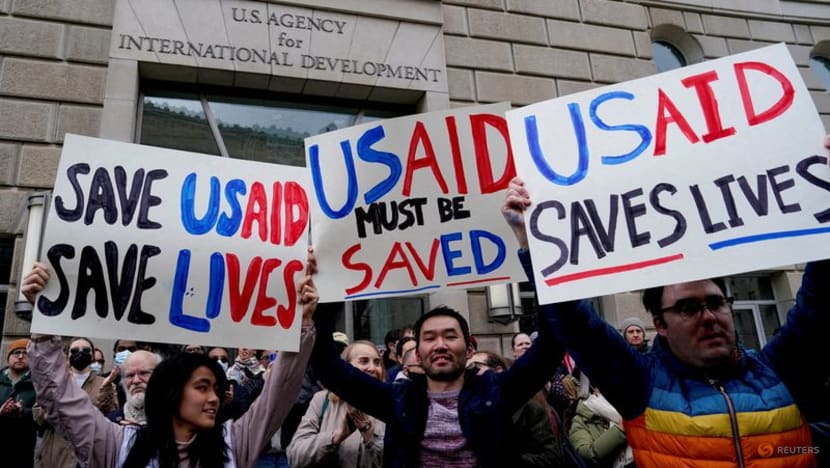
A CNA tally of figures on ForeignAssistance.gov indicated that USAID allocated US$837.3 million to eight of the 10 member states of the Association of Southeast Asian Nations last year. Singapore and Brunei did not appear to be allocated funds managed by USAID.
These include US$237.6 million for Myanmar, US$151.3 million for Indonesia, US$135.4 million for Vietnam and US$20.45 million for Thailand.
Throughout Southeast Asia, the dismantling of USAID has left small grassroots organisations like Thailand’s Manushya Foundation reeling.
That’s because a percentage of USAID’s funding typically trickles down to smaller groups doing hands-on work in communities, from malaria prevention to anti-human trafficking, health support for refugees and clean energy.
“The world has crumbled around us, at least as far as foreign assistance to development in Southeast Asia goes,” said Phil Robertson, the director of Asia Human Rights and Labor Advocates (AHRLA) at a panel discussion in Bangkok last week.
“It’s a tremendous upheaval. People are in shock, People are depressed. People are dismayed,” he said at the event organised by SEA Junction, a non-profit that aims to foster greater sociocultural understanding of Southeast Asia.
For fiscal year 2024, Indonesia (US$791.4 million) received the highest allocation of overall US foreign aid among Southeast Asian nations, followed by the Philippines (US$695.1 million) and Vietnam (US$264.1 million), according to ForeignAssistance.gov.
Thailand and Malaysia were allocated US$38.7 million and US$2.6 million respectively.
These sums include allocations from various US agencies, including USAID.
Reuters reported on Feb 6 that Indonesia’s health partnerships with USAID were on hold with no indication of whether they would resume, straining Jakarta’s efforts against HIV and tuberculosis, which replaced COVID-19 to become the top cause of infectious disease-related deaths globally in 2023.
A key USAID initiative in Indonesia is the Together Towards Elimination and Freedom From TB (USAID BEBAS TB) programme, launched in July 2023, news outlet Jakarta Globe reported this month.
The five-year US$70 million initiative aims to improve detection, diagnosis, treatment, and prevention of TB, supporting Indonesia’s goal of eliminating the disease by 2030.
The Indonesian government has said it has the financial resources to sustain development efforts without relying heavily on foreign aid.
“All this time, the Indonesian government has always considered international funding – regardless of where (the funds) come from – as something that is supplementary. The main source of funding has always been our state budget,” Foreign Affairs Ministry spokesman Rolliansyah “Roy” Soemirat told a press briefing this month.
In the Philippines, USAID cuts have threatened the fight against rising HIV cases, with the country’s LGBTQ rights groups forced to find new financing strategies and sources of funding.
As for Vietnam, the Associated Press reported on Mar 20 that USAID cuts have halted a rehabilitation programme for war victims as well as efforts to clear unexploded American munitions and landmines.
In addition to exposing thousands of people to health hazards, the cuts risk jeopardising the US’ diplomatic gains with Vietnam, a country Washington could seek support from to counter an increasingly aggressive China, the report said.
HEALTH SERVICE IMPACTS
Frontline healthcare for the LGBTQ community is one area where the aid cuts have hit hard and fast in Thailand.
According to an analysis by the Service Workers IN Group Foundation (SWING Thailand), there are close to 700,000 people in Thailand receiving services related to HIV under a policy called the Reach-Recruit-Test-Treat-Retain approach. It is part of a national strategy to eliminate HIV/AIDS in Thailand by 2030.
But the analysis, based on data from the National Health Security Office, found that 85 per cent of those receiving related care was through civil society groups rather than the national health system.
Some 60 per cent of those receiving pre-exposure prophylaxis to prevent HIV infection also do it through NGOs. Without this medication, individuals face higher HIV transmission risks.
“The NGOs provide care for vulnerable groups and for groups that are not able to get access from other sources … let’s say if you don’t have documents, you’re a migrant or have a feeling of being discriminated against by a care provider,” said Kaona Saowakun, vice-president of the Isaan Gender Diversity Network Foundation.
“So that’s why they’re impacted a lot. It could take the lives of people. It’s the sudden decision. No one could prepare for that. Meaning they (the US government) don’t care about the impact,” he added.
Chamrong Phangnongyang, the deputy director of SWING, said his organisation had a mandate under USAID to provide free services to people of five nationalities: Myanmar, Laos, Vietnam, Cambodia and Thailand.
Now, while they won’t deny service to migrants, the services are no longer fully covered, unlike for Thais who could receive assistance through the National Health Security Office.
It could impact tens of thousands of people annually and the response from Thai authorities has been muted so far on this issue, he said.
“Does the country (Thailand) not realise this? Why is the country so silent, acting like nothing has happened? Can we really just let community organisations collapse without doing anything?”
Kaona estimated that among the dozens of organisations in Thailand working in the LGBTQ health space, some would have lost just a-tenth of their total funding, while for others it is as high as 60 per cent.
“Right now the impact is predictable. It’s either suspend activities, close the project, shut offices, cut staff benefits or cut the staffing itself,” he said.
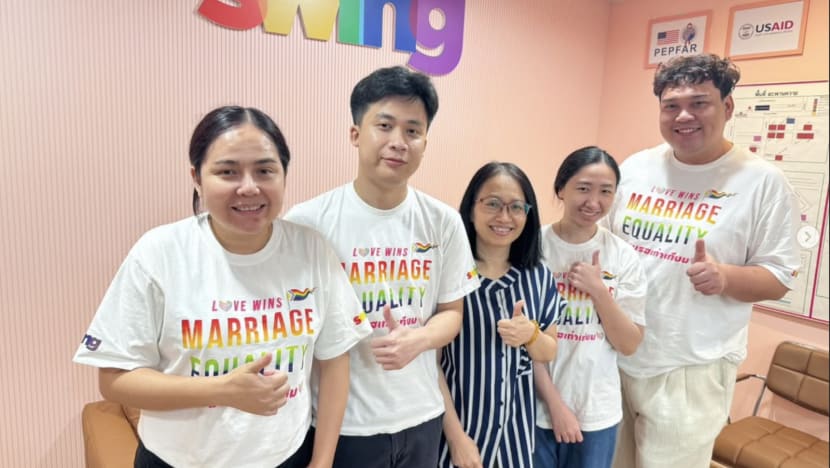
The impact on Thailand will be two-fold as US funding is directed both to the Thai government’s health programmes and civil society groups.
Small media organisations are also impacted. The Irrawaddy, a news website founded by Burmese exiles living in Thailand, was also a recipient of USAID funding until it was frozen.
It has conducted detailed reporting in recent years about political upheaval in Myanmar, human rights issues, the ongoing civil war and security situation and chronicled the struggles of marginalised communities.
Its editor-in-chief Aung Zaw said at the SEA Junction event that it remains unclear if all 65 staff members can be retained, or how many might need to be let go.
“We are thinking about what we can cut or suspend to keep our core team working. This is what we are thinking for the long term to survive,” he said.
For the frontline organisations in Thailand struggling to stay afloat, finding new sources of funding presents a steep challenge.
Those that CNA spoke with had different ideas – from looking domestically at what national governments could cover to forging new relationships with philanthropy groups.
There was an acceptance, however, that America’s money was probably not coming back anytime soon.
“We have to accept the fact that many of us have to downsize. So, our goal is not to get bigger, but our goal is to focus on what we are doing well and prioritise that,” Palamy Pradichit of Manushya Foundation said.
“We have to rethink how we get funded. And we have to be innovative.”
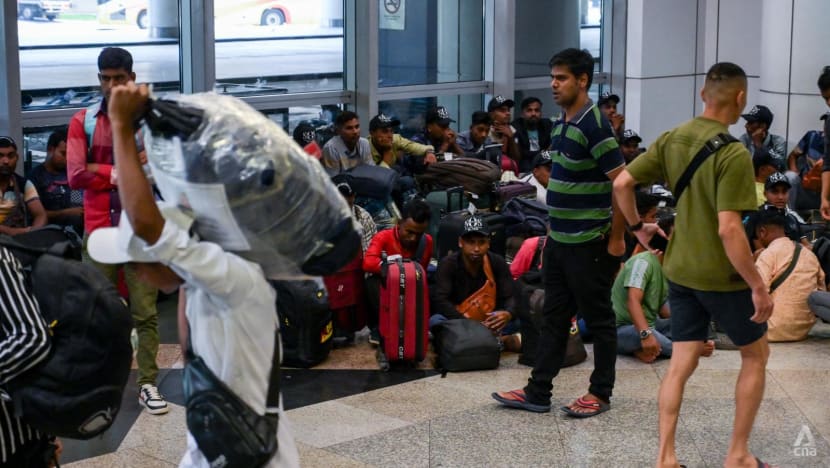
SITUATION IN MALAYSIA
Over in Malaysia, the executive director of North South Initiative, a migrant rights group, said the USAID funding cuts have affected its partners – usually regional NGOs – and caused it to lose about 40 per cent of its “core funding”.
“Certain projects were directly terminated by our partners. So that means staff in those terminated projects will either need to be laid off or repositioned in another project if there are sufficient funds,” Adrian Pereira told CNA.
One such project is a shelter for male migrant workers who are pursuing legal action concerning their employment and are thus unable to work.
While North South Initiative does not get USAID funds directly, Pereira estimated that his NGO was granted USAID-funded projects worth between US$100,000 and US$150,000 last year.
“Sadly, this scenario (of reduced foreign aid) has pushed us to a corner. In the next one or two days or even hours, I will have to make decisions – very painful decisions – regarding these shelters or safe homes,” Pereira said.
Pereira said the lack of lead time before US foreign aid was pulled had caught many NGOs in Malaysia by surprise, noting that donors usually give advance notice of about six months to a year before exiting.
“I think a lot of NGOs will be in trouble … What is worrying is the (impact on) vulnerable communities that we have been protecting for many years,” he added, referring to grassroots beneficiaries like migrant workers and refugees.
“What happens to them when organisations have to shut down their shelters? What happens to them when medical aid is cut?”
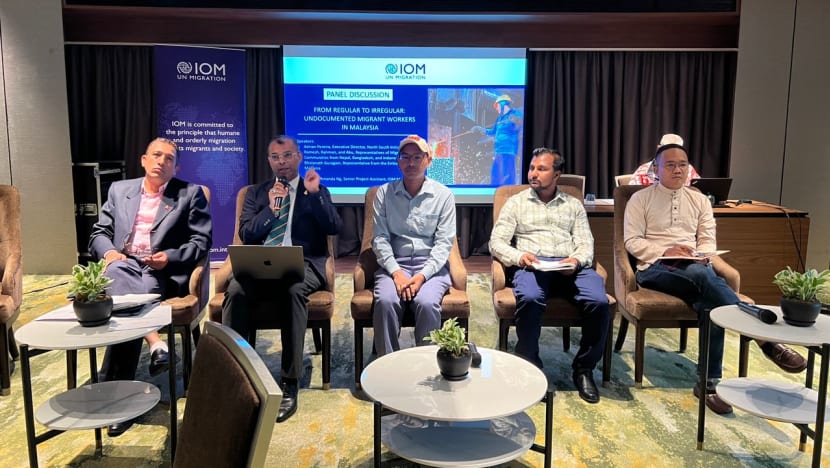
Arlina Ghani, co-founder of Justice for Wildlife Malaysia, a wildlife conservation group focused on building legal capabilities, told CNA that the US foreign aid cuts have forced her partners to suspend three projects.
These projects involve capacity building for wildlife law enforcement officers in Sabah and peninsular Malaysia, as well as adding more wildlife case trackers across the country.
The US Department of State, which funded these projects, issued the NGOs a stop-work order in January, Arlina said, effectively suspending all grants for 90 days pending a review.
This meant Arlina had to break the news to colleagues who had been freshly hired under these projects, including one who had moved back to Kota Kinabalu in Sabah from Kuala Lumpur for the new role.
“Now I have to tell them, ‘Look, guys, you might not be getting your salaries for three months. The projects might be cancelled, so you might have to look for other jobs.’ That’s the most difficult bit,” she said.
The plan now, Arlina said, is to look for alternative sources of funding, including starting a formal crowdfunding programme.
“We also plan to reach out to companies, the corporate sector mostly, and we are also thinking of getting law firms to assist with the funding as well,” she said.
“So right now, it’s just a matter of ironing out the details in terms of, okay, if they fund us, how do we deal with the conflict of interest.”
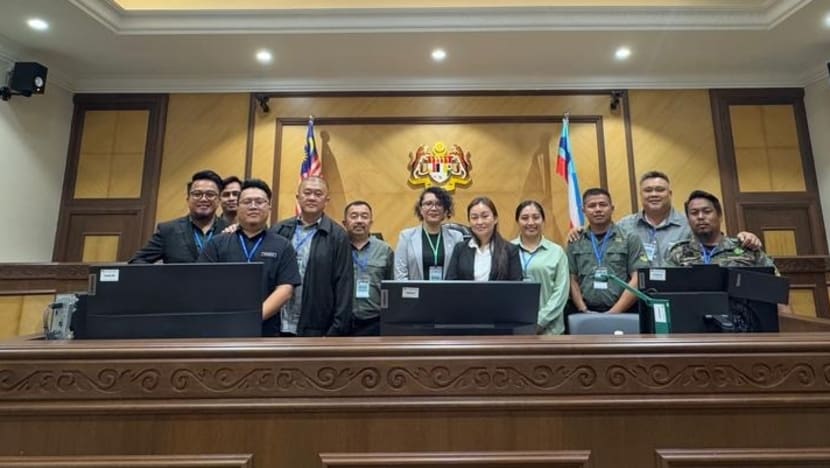
Both Arlina and Pereira acknowledged that some causes are not as appealing as others when it comes to getting funding from brands, companies or politicians.
For instance, human trafficking is typically “not so attractive, or doesn’t give the PR image that a lot of donors are looking for” compared to, say, sustainability, Pereira said.
Pereira hopes the US reverses its suspension of foreign aid, warning that it could “backfire” on the country’s crucial supply chains if there are not enough labour rights groups safeguarding migrant workers’ welfare.
“It’s not that we are over-dependent (on US aid); it’s just the nature of how the development world works,” he said, calling on Asian and African governments to fill the gap by funding their own civil societies.
HOW FOREIGN AID COULD CHANGE
Pereira and other experts say reforms are needed in the international humanitarian aid system for it to function sustainably in the future.
At the moment, most foreign aid is “sucked up” by United Nations (UN) organisations and regional NGOs, with little trickling down to smaller counterparts on the ground, Pereira highlighted.
The existing system has far too much wastage and too little money reaching small civil society groups, added Rosalia Sciortino, the founder and director of SEA Junction.
“We need to recognise that there was a need to give more to local societies and local organisations,” she told the panel event in Bangkok.
“And all of us as civil society, we need to learn about saving and we need to learn about reducing waste in our spending. So it’s not only the money we get but how we use the money, ensuring it’s used for the sustainability of our organisation.”
John Luke Chua, part of the USAID-funded Asia Counter Trafficking in Persons project, said reform would be difficult in an environment of blanket cuts.
“I’ve heard calls for localisation, more flexible funding and stronger support for grassroots. Instead of that, what we have right now is a sharp rightward turn that prioritises political expediency over evidence-based impact,” he told the panel.
“Funding decisions are no longer driven by whether programmes actually achieve what they set out to achieve, but by whether or not they align with short-term political calculus.”
Sara Piazzano, an independent consultant and project manager, noted greater shifts happening as governments worldwide increasingly reduce their foreign aid budgets and are more willing to offer concessional loans instead.
These types of loans, which reached record highs in value globally in 2023, are usually low- or zero-interest and can be funnelled from governments through specialised programmes and partnerships with international institutions, including multilateral banks.
“Japan is doing that. They shifted almost all the development aid there. China, of course, has always used this approach. Maybe this is the future that we are going to see,” Piazzano said, highlighting that major recipients in Asia include Indonesia, Vietnam and India.
“I was thinking Bangladesh would have a big impact, not having USAID. But actually, if you compare what they are getting from the World Bank, USAID is nothing,” she said.
Data shows Bangladesh’s World Bank financing was five times that of USAID in 2023..
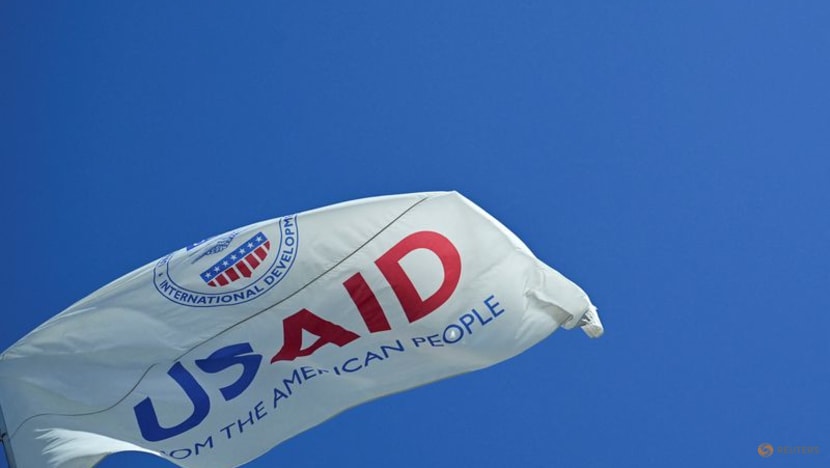
“JUST” CONDITIONS NEEDED IF OTHER COUNTRIES FILL FUNDING VOID
Beyond the type of aid, the Trump administration’s dismantling of the US foreign aid apparatus has created a vacuum that China is rapidly filling, argued Joshua Kurlantzick, a senior fellow for Southeast Asia at the Council on Foreign Relations, a US-based think tank.
China has begun to identify places with potential projects in countries where USAID is now gone or all but gone, increasing its influence and soft power in regions like Southeast Asia, Kurlantzick wrote in a blog post for the think tank on Feb 26.
“Beijing seems to be considering increasing a range of humanitarian aid projects in health, education, and sanitation in mainland Southeast Asia, in some of the region’s poorest states,” he wrote.
For instance, China has assumed the cost of a high-profile de-mining project in Cambodia that the US used to fund.
“Suppose other donors, like the Gates Foundation or major donors like Japan, cannot fulfill projects USAID abandoned. In that case, China will likely begin providing more outright aid, not loans, to continue some of these initiatives, especially in states of strategic importance to Beijing,” he added.
Under the auspices of the UN, China, together with 135 countries from the Global South, have also crafted a “South-South agenda” that aims to strengthen collective self-reliance among developing nations.
An August 2023 study on the evaluation of international cooperation efforts noted that South-South cooperation was gaining momentum, as its stakeholders rejected more developed countries’ “imposed ways of working”.
This refers to a top-down approach of donors setting the agenda for aid recipients.
Instead, South-South cooperation promotes “horizontal interaction” using demand-driven models of cooperation to influence project design, resource allocation and evaluation methods, said the study, which was commissioned by the Ford Foundation.
Already, some countries have sought to pick up the slack.
Australia announced this week that it will redirect more than A$119 million (US$73.5 million) in Canberra’s official development assistance budget for 2025-2026 from multilateral programmes to fight poverty and disease toward those in the Indo-Pacific region that it funds directly to support economic, health, humanitarian and climate responses.
While Australia Foreign Minister Penny Wong did not mention Washington’s cuts in explaining Australia’s change in focus, she said: “We’ve had to make hard strategic decisions and focus on where our development assistance can have the greatest impact.
“In these uncertain times, we are ensuring more of Australia’s development assistance is going to the Pacific and Southeast Asia, where Australia’s interests are most at stake.”
North South Initiative’s Pereira, who was involved in the Ford Foundation study, told CNA that “sooner or later” global powers like China or Russia would seek to “tell their side of the development agenda”.
He admitted that foreign funding for NGOs has always been a “very sensitive” issue because governments could look at it as a matter of national security.
Pereira said he would consider accepting funding from Chinese or Japanese sources equivalent to USAID for his NGO, as long as the terms and conditions are “just”.
“When we negotiate with our funders, we make sure they don’t impose unnecessary or irrational stipulations,” he added.
In the meantime, NGOs in the region continue to bleed from the US’ funding suspension.
“Trump and Musk are treating USAID like a hospital full of patients in which they pulled out all the doctors and the nurses, they shut off the electricity and the water, and they locked the doors on the way out,” said Robertson at the SEA Junction event.
“Then in a couple months, they’re going to wander back in to see if there are any survivors. There won’t be.”
Additional reporting by Jiratchaya Chaichumkhun




























